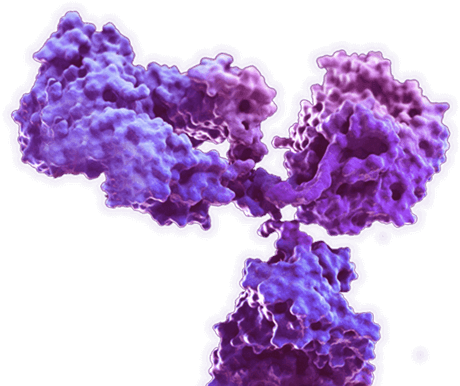AibGenesis™ Mouse Anti-Arabidopsis AT4G31080 / AT4G31090 Antibody (CBMOAB-0130FYC)
Cat: CBMOAB-0130FYC

Certificate of Analysis Lookup
To download a Certificate of Analysis, please enter a lot number in the search box below. Note: Certificate of Analysis not available for kit components.
Lot Number
To download a Certificate of Analysis, please enter a lot number in the search box below. Note: Certificate of Analysis not available for kit components.
Lot Number
| Size: | |
| Conjugate: | |
| Inquiry |
- Specifications
- Application Information
- Target
- Reference
Specifications
| Host species | Mouse (Mus musculus) |
| Species Reactivity | A. thaliana (Arabidopsis thaliana) |
| Clone | MO0130FC |
| Specificity | This antibody binds to Arabidopsis AT4G31080 / AT4G31090. |
| Format | Liquid or Lyophilized |
| Storage | Store at 4°C: short-term (1-2weeks) Store at -20°C: long-term and future use |
| Purity | > 90% was determined by SDS-PAGE |
| Purification | Purified with Protein A or G affinity chromatography |
Application Information
| Application | WB, ELISA |
| Application Notes | ELISA: 1:1000-1:3000 Other applications are to be developed. The optimal dilution should be determined by the end user. |
Target
| Product Overview | Mouse Anti-Arabidopsis AT4G31080 / AT4G31090 Antibody is a mouse antibody against AT4G31080 / AT4G31090. It can be used for AT4G31080 / AT4G31090 detection in Western Blot, Enzyme-Linked Immunosorbent Assay. |
| Alternative Names | Putative uncharacterized protein At4g31090; At4g31080 At4g31090 |
| UniProt ID | Q67YL9 |
| Protein Refseq | The length of the protein is 409 amino acids long. The sequence is show below: MAQEQEGAVVEKGEPNDSSAAAVAATATATADSVKKKQNGFFSRLWNGIFRVRGDDFEKRLQYVSREEATVLSRMKRRSISWRKLTRNLIVSSVLFEIIAVGYAILTTRTEDLDWRMRSFRILPMFILPAVSALAYSSIVSFSKMFDRRDQKTLEKLRAERLAKINELKERTNYYTTQQLIQRYDPDPAAKAAAATVLASKLGADSGLKVYLGDESQLDPSSGKSNDMEVNQSRGLRNRRQPNTRPHGSGSTSTHHSDDESHHSGTSERFPGTTEQNQQMLVEHYSPQGYAAHDGSWISRIAALLVGEDPTQSYALICGNCRMHNGLARKEDFAYITYYCPHCNALNKPKHSEENVLLPAISASPITDSLPLIETSEVVNSSSSSSERGSSPTPEIKEEAAITETGTPS. |
Reference
| Reference | Kriechbaumer, V., Breeze, E., Pain, C., Tolmie, F., Frigerio, L., & Hawes, C. (2018). Arabidopsis Lunapark proteins are involved in ER cisternae formation. New Phytologist, 219(3), 990-1004. |
For Research Use Only | Not For Clinical Use.
Online Inquiry


